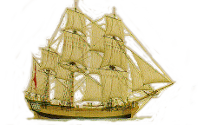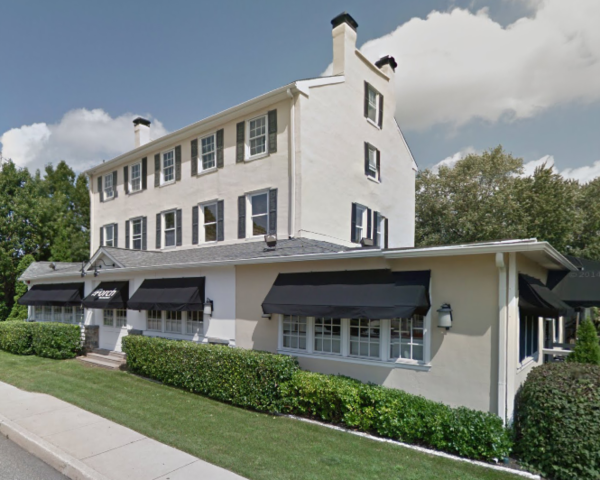Lamb Tavern
The difficulties Emmor Eachus had at the Blue Ball lnn caused him to make a change in the house, for which he asked license, and in 1808 he appears to have removed to a dwelling a short distance above the Springfield meeting-house. To the new house he gave the name of the "Three Tuns." It was at this house that Capt. Morgan's company of drafted men assembled in October, 1814, previous to taking up the line of march for Marcus Hook. The license was continued to Emmor Eachus until 1820, when he was succeeded as landlord by John Jones, and five years thereafter John Fawkes kept the house for a brief season, for, dying in less than a year, his widow, Susan Fawkes, applied for license in 1826. The sage opinion of the late Tony Weller has convinced the world that there is a peculiar attraction about a widow that is fatal to the liberty of single gentlemen, but when the disconsolate relict has the additional recommendation of being the landlady of a public-house, she becomes absolutely irresistible. Hence, when Mr. Wayne Litzenberg saw Mrs. Fawkes, he was not exempt from the general fascination of the pleasing widow, and I was not surprised to find that in the application for license for the "Three Tuns," in 1829, Wayne Litzenberg figures as the petitioner, and informs the court that he has intermarried with Susan Fawkes.
In 1830, John Black followed as the landlord, to be succeeded in 1835 by Isaac Johnson, when, the old Lamb Tavern kept by Gibbons having ceased to be a licensed house, Johnson substituted for his tavern the name "The Lamb," instead of the "Three Tuns," by which it had formerly been known. The latter was greatly interested in military matters, and fre-quently the militia under the old law assembled at his house for review and to be instructed in the art of war. In 1837, John Ford was mine host of the Lamb, and in 1847, Forrester Hoopes was the landlord, his first license being had under the first local option law, when he was granted leave by the court to keep a temperance house, which was not the sort of privilege he desired. Here he continued, receiving full license after the law which interdicted the sale of liquor in that township had been declared by the Supreme Court unconstitutional, until 1853, when the owner of the property, George Worrall, kept the house. The latter in 1868 was followed by Joseph H. Black, who in the succeeding year retired, to be followed by George Worrall. In 1863, Peter H. Hill had license for the house, which he afterwards had transferred to Worrall. The next year, 1864, William F. Woodward kept the tavern, and remained there until 1868, when Malachi W. Sloan became the proprietor. He in 1869 gave place to Benjamin Rodgers, to be followed in 1873 by Mr. Sloan. In 1875 Leedom Kirk was the landlord, and James A. Serverson in 1878.
Malachi W. Sloan died Aug. 16, 1881, and in his will directed, " It is my will and desire that the 'Lamb Tavern property,' in said will named, shall, after the expiration of the present lease, be no longer used for the purpose of a hotel." The Lamb Tavern, under this provision, is no longer a licensed house.[bib]703[/bib]
Charles Adams, III, visited the Lamb when writing his book Ghost Stories of Delaware County, and his guest noted that the old inn had a presence, though not one that was particularly scary. Adams suggested that perhaps old Malachi Sloan was till keeping watch over his old inn.[bib]716[/bib]




